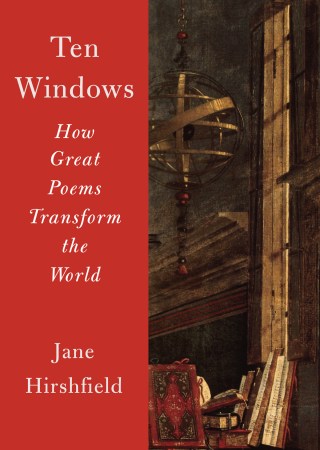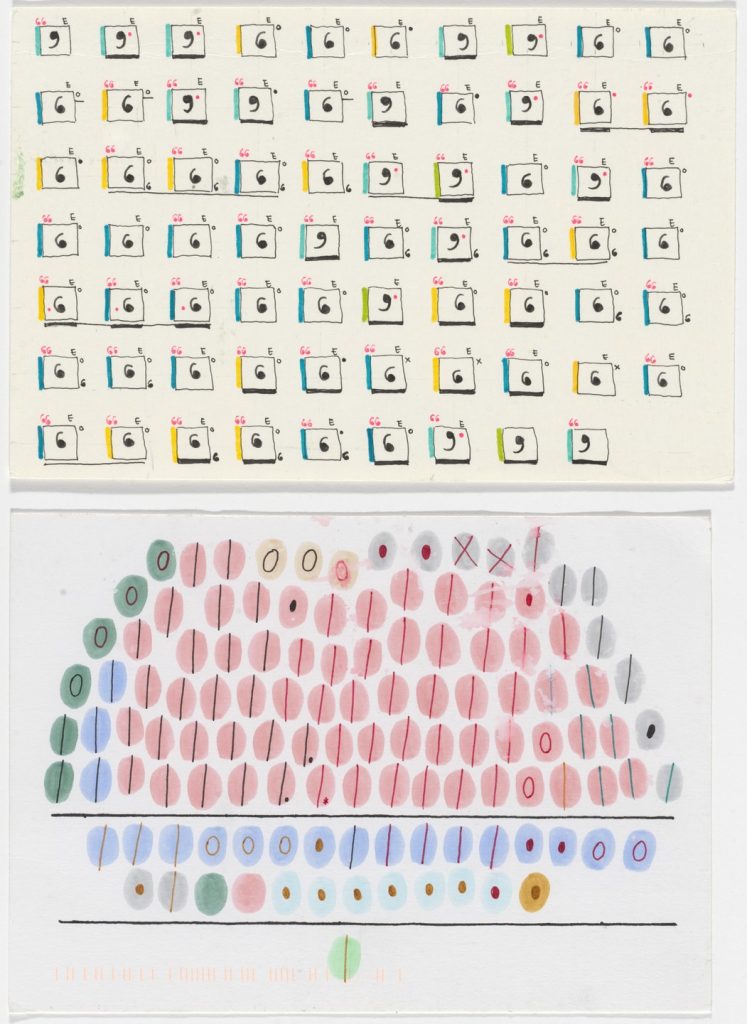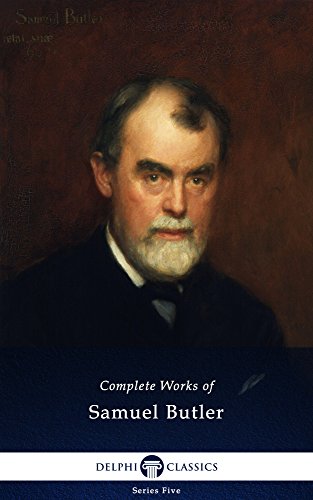Note: The post was edited to make clear that the 2020 data cannot be directly compared to the 2009 data, owing to changes in the survey population.
Discussion welcome.
Results from the 2020 PhilPapers survey, with responses from nearly 1,800 philosophers (mainly from North America, Europe, and Australasia), to questions on a variety of philosophical subjects and problems, have now been published.
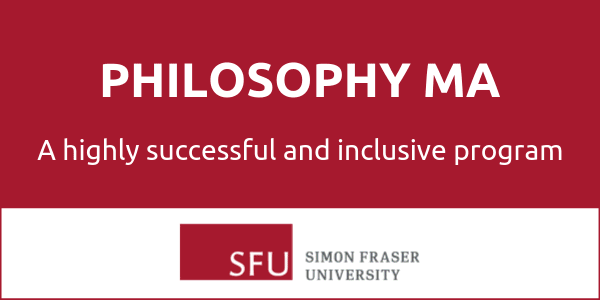
Here are the results of the main questions:
Bourget and Chalmers note that the results reported above cannot be directly compared to the 2009 results, owing to the change in the population surveyed. Still, they noted some of the largest shifts in responses among those who took both surveys. These include swings:
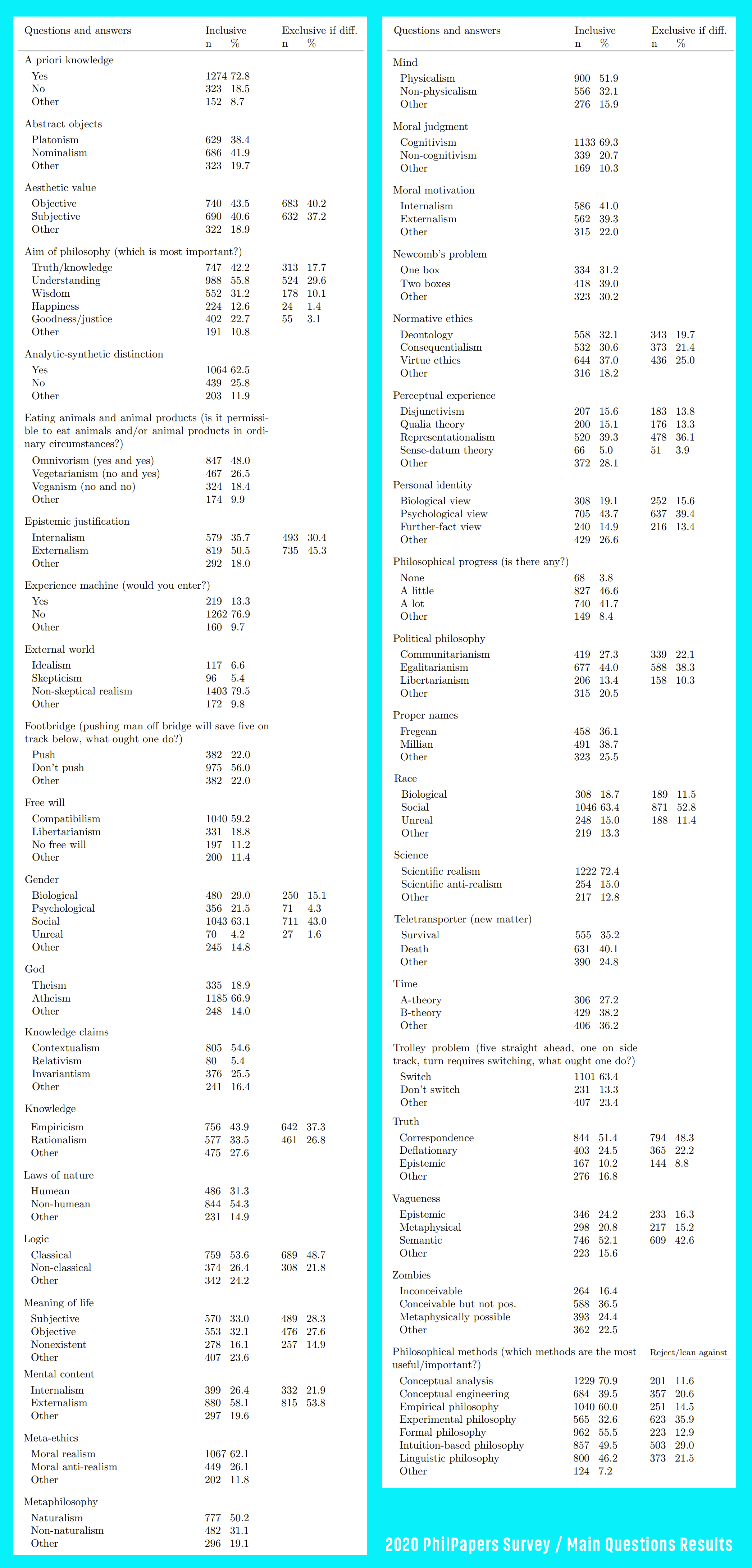
- towards not switching in trolley problem (bystander)
- towards non-classical logic
- towards non-cognitivism in moral judgment
- away from invariantism regarding knowledge claims
- towards Platonism about abstract objects
- away from “no free will”.
In their commentary on the survey, David Bourget (Western University) and David Chalmers (NYU) explain the its value:
See their write-up for a more detailed longitudinal analysis of philosophers’ views.
- 81.7% think abortion is sometimes permissible
- 75.1% think capital punishment is impermissible
- The most popular view of consciousness is functionalism with 33% of respondents supporting it
- 51.3% accept some version of the extended mind thesis
- 50.9% endorse revising gender categories
- 40.4% endorse eliminating race categories
- 64.2% think human genetic engineering is sometimes permissible
- 44.9% would choose immortality, 41.3% would not, while 13.6 selected “other” as a response
- Naturalist realism edged out non-naturalist realism and constructivism as the most popular metaethics
- Almost 30% support capitalism, but 53% support socialism, while close to 20% choose “other”
- 56% think there is “a lot” of philosophical knowledge and 32.5% think there is “a little,” while paradox did not stop 3.6% from saying there is “none”
- Respondents were about evenly divided on whether time travel is metaphysically possible
- Only 2% thought particles could be conscious
Surveys like this can play at least three roles within philosophy. First, today’s sociology is tomorrow’s history, and these results
may be of some use to future historians of philosophy. Second, philosophers often appeal to sociological claims about the distributions of views among philosophers, for example in justifying which views should be taken seriously, and it makes sense for these claims to be well-grounded. Third, if philosophy has any tendency to converge to the truth, then philosophers’ views might provide some guidance about the truth of philosophical views. It is not clear whether philosophy tends to converge to the truth, so we don’t make the third claim about guidance, but surveys can clearly play the first two roles in philosophical practice.
The survey asked 40 “main” questions and 60 “additional” questions.
Bourget and Chalmers also include information about which answers to different questions are correlated. For the complete set of results and additional analysis, go here.
Here are a few results from the newly added questions:
